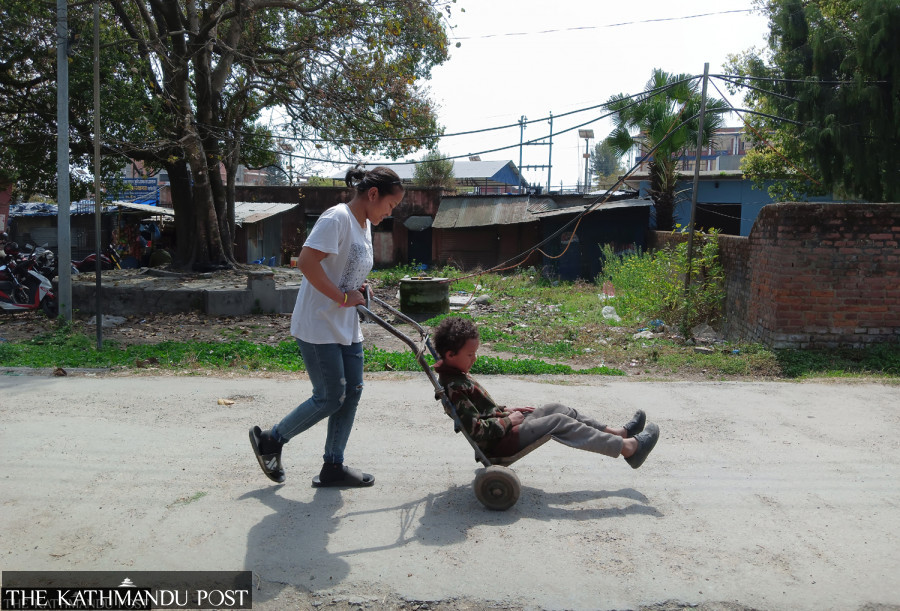Editorial
Happy about what?
Happiness, for Nepalis, has remained a dream deferred for quite long.
“One must imagine Sisyphus happy,” writes Albert Camus of his tragic hero whom he has left at the foot of the mountain once again. Having defied gods, Sisyphus has been punished to roll a rock uphill, an impossible task that ends in the rock rolling back to the foothill, from where he has to start again. What makes Sisyphus a hero is his zeal to make each step of his journey meaningful notwithstanding the failure that is to follow, and his attitude that “all is well”.
Like Sisyphus, Nepalis also seem to be imagining themselves happy, as per the World Happiness Report published by the United Nations Sustainable Development Solutions. Nepal is the 84th happiest among the 150 countries surveyed, and fares better than other countries in South Asia—Bangladesh (94th), Sri Lanka (127th), and India (136th), although it lags behind China (72nd). Comparisons are dangerous things, for they give us a false sense of superiority or inferiority in relation to others. The results of the survey seem to be dubious if we see where we really stand today.
The survey focused on six categories in particular: gross domestic product per capita; healthy life expectancy; social support; freedom to make life choices; generosity of the general population; and perceptions of internal and external corruption levels. The survey included about 1,000 respondents from each country, irrespective of the country’s population, which itself seems to be a problematic way of gauging the subjective experiences of a diverse population. But a few indicators are enough to show where we really stand vis-à-vis the idea of happiness.
Nepal is a country where 18.7 percent of the population lives below the poverty line, the unemployment rate stands at 4.4 percent, gross domestic product is among the lowest in the world, and the government seems to be working for everyone except the people. Who are these people who said they were happy when they knew that the government did little to assuage their pain when they were struggling to secure an oxygen cylinder or a hospital bed or a couple of meals a day during the Covid-19 pandemic? Why are they happy when their government is always keen to betray them during difficult times?
The only valid explanation for this could be that Nepalis are used to responding with “theek chha” to every “ke chha?” by strangers and acquaintances alike, and hardly ever a “theek chhaina”. They are used to saying “all is well” even when a government that comes with the promise of “Prosperous Nepal, Happy Nepalis” dupes them by robbing them of their rights to dignity and democracy. They are perhaps used to imagining themselves happy to assuage their pain, because they are used to thinking that nothing is going to change for the better.
Happiness, for Nepalis, has remained a dream deferred for quite long. As elections come near, political parties and politicians will once again encourage people to imagine themselves happy, and will prod them to dream of a happier future. Rather than celebrate such dubious claims, Nepalis must start questioning why they or their fellow countrymen continue to lack access to a dignified life, the most fundamental of all indicators.




 13.12°C Kathmandu
13.12°C Kathmandu














